My Grandmothers' Younger Brother, Roy, on Jinny at a Picnic in the Bush, c1900
As a very little kid, my (truly beloved) grandmother used to read me a story she'd written about Jinny, a little Shetland pony owned by her family.
What's so remarkable about this perhaps seemingly unremarkable event is that she was almost totally uneducated - reaching grade four in elementary school. Her family lived on their farm way way (way) out in the country in north eastern Victoria near the New South Wales border. The nearest town was fifty miles away. No roads - just a few dirt tracks. The neighbours miles away.
My Great Grandmother

My Grandmother c1915
After her husband died, she turned her mind to new things - one being writing. Poetry came first, with a collection eventually being published, to her almost uncontainable joy. Poems mainly about migrating to Australia in the 1850s and the country life thereafter.
There were also a few short stories, one written for children about a dearly beloved family pet - a Shetland pony named 'Jinny'.
There are many things I love about this particular piece of writing.
Most immediate for me is the obvious love of story telling - a real joy in bringing the late C19 vividly alive for young listeners - 'Jinny' was to be read aloud rather than for reading. And this is realised in part in the language itself, which reads as speech more than prose much of the time.
There is some craft skill in structuring the discourse. We first hear of the arrival of the pony one dark night, and then go back in time to how the little creature had been bought, and to its journey to the farm and its arrival that night - finishing with 'You know what happened after that'.
I'm always surprised how much social history is unobtrusively packed in. In a way that moves the story forward rather than seeming like 'teaching'.
We meet the hawkers who travel from homestead to homestead, their horse-drawn vans traveling shops selling 'darning wool, strong black cotton, bootlaces ... stockings'. At each farm they'd spend a few days, tidying up their shop, doing their washing and giving their horses a rest. Hawkers would have a third horse for when the roads were wet and 'heavy'.
We become aware of the knowledge people had of the different kinds of horses of the day - draught horses, cart horses, saddle hacks and pairs for the buggy.
And aware of domestic social history. That fireplaces had their backs painted white to radiate heat out into the room. And that lamps were moved around the room depending on what people were doing, from the mantle piece to the table and so on. That the primary school curriculum involved 'spelling, tables and poetry'. That 'tea' (dinner) could consist of fried eggs and bacon, and fried bread, and 'fresh bread with melon jam and thick scalded cream, and hot scones and butter'. Yum but mighty cholesterol-ific - so how did my grandmother manage to live to 88 years of age!
And there's also a sense of the world beyond - we hear about Pirate - in the background of the photo, behind Jinny's head - a horse taken by a soldier relation to the Boer War.
Enough yak yak yak, hope you find the story half as charming and engaging as I do.
'Jinny'
This is a true story about a much loved family pet. Our father bought her for us when we were little children.
The little boy sitting on Jinny's back in the photo was our baby brother Roy. It was taken by a travelling photographer at our Pompapiel School picnic.
The horse just beyond Jinny's head was called 'Pirate'. His owner was a friend of ours, who went to the Boer War in South Africa. He was one of the 'Australian Light Horse', and he took Pirate with him to the war. Pirate was a very smart and flash horse before the war, but he looks rather tired in this photo. I suppose he got tired at the war. He was one of lots of horses 'hitched to the posts of the fence for the day', at the picnic.
It was about 6 o'clock on a Friday evening. It was winter, and so it was quite dark, and very cold. There was a lovely log fire blazing in the big whitewashed fireplace at one end of the room, and it was just about teatime.
We had had a bowl of soup when we came home from school, but we were hundgry again by this time and quite ready for our tea.
It was the kind of tea we all loved - fried eggs and bacon and fried bread, then fresh bread and melon jam with thick scaulded cream, and hot scones and butter.
Our mother use to make buttermilk scones, which are really bettter than any other kind of scones - you do not cut them with a knife - you just break them open and put little rolls of butter on while they are hot: the butter melts and 'oh'! I feel hungry when I remember them, and there was hot cocoa made with milk.
We had got our written homework done before the table had to be set for tea, and we were learning our spelling and tables and tables and poetry as we sat on the sofa, and on the floor in front of the fire.
The table was at one end of the room and the sofa at the other sides, and so our mother used to put the lamp on the mantlepiece so that we could all see better. The light from the fire helped us to see better too, when we sat on the floor.
When mother said 'tea's ready' there was a rush to put our books away and 'sit up to the table'. Mother would put the lamp back on the table and someone would say grace, and off we'd go'. No-one liked to be 'Last finished!'
On this Friday night we were all ready to have our tea without any arguing or disputing about anything. We were all extra good, and anxious to get our tea over quickly, because we were waiting for something terribly special. We had never been so excited in our lives.
Well, we had finished our bacon and eggs, and had some bread and jam and cream, and mother had just put a big plate of hot buttermilk scones on the table, when Barney barked.
Barney was our dog.
We all stopped and looked at each other, and mother told us to get on with our tea, and we said we'd all had enough - that we'd had such a big bowl of soup afer school that we couldn't eat another scrap, and please could we leave the table.
Before there was time for her to say 'Yes' or 'No' the door opened and Bob stood in the doorway.
Bob was a very big man, nearly as high as the door, and he had a huge raincoat on with a big cape on it, and so he filled the doorway. He said 'Well, bad luck, I couldn't bring her!'
We all just groaned and sat down.
Mother said, 'What about a hot scone after all?' but we were all too disappointed to bother about eating any more.
And then Bob walked through the doorway and into the middle of the room, and close behind him walked- what we'd been waiting for - the darlingesy little Shetland Pony you ever saw - Bob leading her by her little bridle!
The scramble was dreadful - chairs pushed aside - all of us pushing each other and sort of gasping with delight and surprised, and, well we could hardly believe it.
Bob quietly took a piece of cake from the table and gave it to the pony, and then a lump of sugar, and she just ate both quietly and stood there in the middle of the room.
We were just amazed and thrilled beyond words. We all crowded around her and patted her and cuddled her around the neck, and it was all too wonderful!
The Bob said, Now, she's tired and we must let her go to bed. Tomorrow is Saturday - no school - and you'll be able to see her all day.' Someone got the lantern and we all swarmed out after Bob, who was still leading Jinny. He put her in the loose box in the stable where there was some clean straw on the floor for a bed. He took off her bridle and put some nice sweet hay in the manger and some chaff and oats in the feed box. We wanted to leave the lantern on for her but Bob said there was no need for that, so we said 'Good night' to her and came inside to talk about it all.
Our farm was in the real country - not near a town or even a township.
There were different kinds of animals on the farms and lots of horses for riding and driving and working in the paddocks, but there was not a pony anywhere in that part of the country.
Well, one day our father was at a town (Bendigo) some distance away, and in one of the quiet streets he saw a little black Shetland pony. It had a bridle on and the bridle rein was tied to a post by the footpath. Father went over to it and patted it and spoke to it. He thought of us, his children at home, so he waited over to it and patted it and spoke to it. He thought of us, his children at home, so he waited nearby until a man came up to the pony.
Father spoke to him, and he said the pony belonged to him. Father asked if it would let children ride it and he said 'Yes, Jinny is very quiet.' Father asked him if he would sell her and offered him a good price, and the man said 'Alright', so father bought the pony, and also paid the man a price to take her to 'The Old House At Home. The man said he knew where the place was and that he would take her and leave her there the next week.
'The old House at Home' was a bush inn on the road about thirty miles from the town and people coming to town from the country could get a meal, and stay overnight if they wished. Our farm was about thrity miles farther on.
Father called at 'The old House at Home' and arranged for the man there to take charge of Jinny when she arrived, and look after her till he could get someone to fetch her home.
As well as paying for her 'board and lodging' he paid a special fee (he called it a tip) so that she would be cared for extra well.
When he came home and told us we were delighted, but we didn't quite know what the pony would be like - we had never seen a Shetland pony. though we knew all about draught horses, cart horses, buggy horses, saddle horses, 'pairs' for the buggy, etc.
Father said it might be weeks before he would be able to get someone to bring her home, so we had to be satisfied to wait, but we became sort of heros at the school when the news got around, spead largely by ourselves, that we were getting a pony.
Now, in the country there were no shops, and of course motor cars had not been invented in those days, and so people on farms had to do their shopping mostly from hawkers.
A hawker was a man who had a shop in a big van which he drove around the country. It was drawn by two horses, or sometimes three if the roads were very wet and muddy - (they called them 'heavy' roads), and he used to call at the farms to sell his goods.
Sometimes the mothers on the farms would be 'right out' of darning wool or strong black cotton or bootlaces, or someone would need new stockings, and so they were always glad to see the hawker coming.
He would always be invited to have a meal; or to stay the night at whichever farm he arrived at at evening time. He slpet in his van.
Well, Bob was a hawker, and he often used to stay for the week-end at our place, to do his washing, give his horses a spell, and tidy up his 'shop'.
And so father arranged for Bob to collect Jinny next time he was passing 'The old House at Home' after being to the town to buy things for his 'shop'. He often used to do messages for our parents and his other customers when he went to the town. He said it would be no trouble to bring Jinny. He owuld have to tie a rope to her bridle rein, and tie the rope to the back of the van, and just lead her that way.
They would not travel very fast and she would be able to trot along quite comfortably. They would stop for a drink of water and a feed of chaff once or twice, by the roadside, and she would be able to eat some grass while they were resting.
Well, Bod expected to be coming on that Friday, for the weekend. He was not there when we got home from school, and he was still not there when it was dark - and six o'clock - and tea time, and we were all asking mother and father lots of questions about it, and they could only say 'Well, I don't know dear'. Everything was most uncertain - and then Barney barked.
You know what happened after that.




![C18 Bronze Buddha [Southern China]](https://blogger.googleusercontent.com/img/b/R29vZ2xl/AVvXsEioLkgVKuhDoIHQgM1X6Oe2hGn75yqaj4OJXPmNpumXmQPKxB22S57YS5DVrl1P7zl7BS6EFpAtaNZPze7gzVCRiQI54bwdHhVa4fGr7NOChZwTZoo92gUen6tC5U8gWIy_pv92U0FB38M/s1600/Buddha+%255BBronze%252C+C18%252C+China%255D+1.jpg)




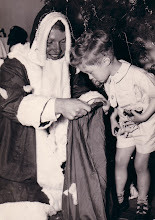







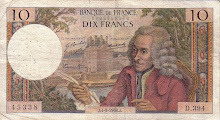
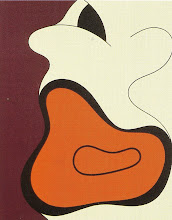+1998+Cropped.jpg)

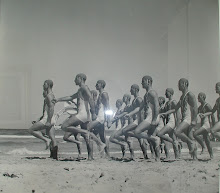
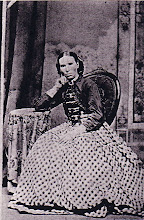



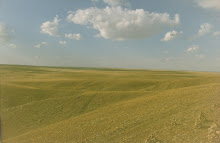



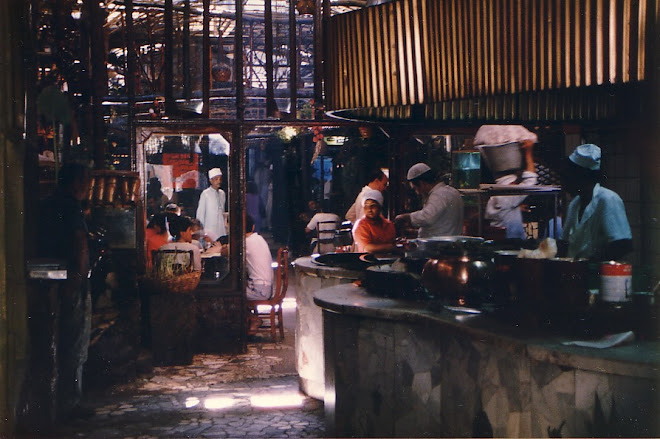

No comments:
Post a Comment